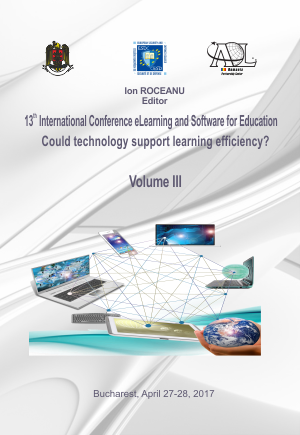AUTOMATIC ASSESSMENT OF MATHEMATICS
AUTOMATIC ASSESSMENT OF MATHEMATICS
Author(s): Stefan POKA, Cosmin HERMANSubject(s): Social Sciences
Published by: Carol I National Defence University Publishing House
Keywords: Moodle; wiris; online evaluation; variables; assessment.
Summary/Abstract: Today’s strategies of learning and teaching are substantially enhanced in the recent years by the rise of eLearning software and ICT technologies. This paper considers automatic assessment of Mathematics by using, on the Moodle platform, the Wiris software for Math and Science. Learning mathematics online, its assessment and teaching it requires special tools; we will show and analyze the new opportunities in more effective learning presented by: Wiris math editor, usage of variables, Computer Algebra System, and other features that provides a consistent formative evaluation. Variable assessment is done by an algorithm invoked by Wiris CAS. One remarkable fact about Wiris software is the possibility of using open ended questions (admitting an unlimited number of correct answers); evaluation of such answers is done by means of using a grading function in the algorithm connected with the item. Wiris software also allows for mathematically equivalent answers to be assessed as correct. Another essential benefit of the software is its easy to use math editor; inputting answer for mathematics is unconceivable without the use of a math editor for the greatest majority of the question types. The possibility of restricting the range for the allowed values for variables so that the steps needed to be done by test takers are not too many or complicated is another great benefit of using Moodle together with Wiris. As a consequence of the above mentioned features, a test that contains items created with Wiris integrated in Moodle is actually a bundle/bunch of tests that reveals itself differently at different attempts; obviously if such a test is simultaneously accessed by a class of students, they will face different questions but with the same degree of difficulty.
Journal: Conference proceedings of »eLearning and Software for Education« (eLSE)
- Issue Year: 13/2017
- Issue No: 01
- Page Range: 111-118
- Page Count: 8
- Language: English

